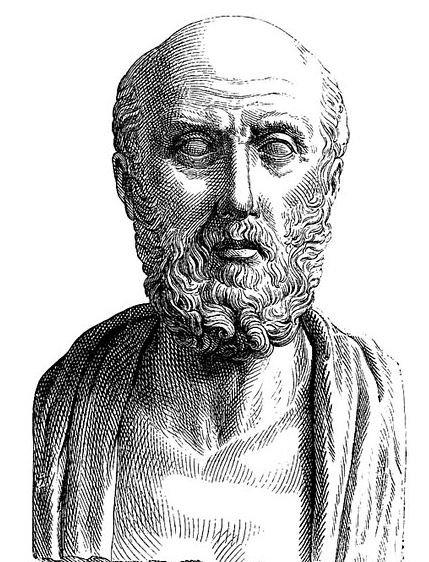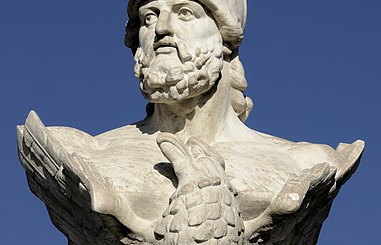Frequently Asked Questions about Hippocrates
Hippocrates, often referred to as the “Father of Medicine,” was an ancient Greek physician born around 460 BC on the island of Kos, Greece. He is considered one of the most outstanding figures in the history of medicine and is credited with establishing medicine as a profession distinct from other fields that were traditionally associated with religion and philosophy.
Below, World History Edu presents some of the most frequently asked questions about Hippocrates
What is Hippocrates best known for?

His Hippocratic school revolutionized ancient Greek medicine, establishing it as a distinct profession. Image: Sculpted image of Hippocrates.
Hippocrates is best known for the Hippocratic Oath, a code of ethics for physicians that is still relevant and in use today in various forms. He is also recognized for his contributions to the systematic study of clinical medicine, the collection of data, and the ethical practice of medicine. His approach to medicine emphasized natural healing, observation, and the importance of a good diet and cleanliness.
What are the main principles of the Hippocratic approach to medicine?
The Hippocratic approach to medicine is based on the principles of observation, diagnosis, and treatment, with a strong emphasis on prognosis. It advocates for a holistic approach, considering the patient’s environment, lifestyle, and diet. The approach also emphasizes the natural healing process of the body and the importance of ethical considerations in the practice of medicine.
Did Hippocrates actually write the Hippocratic Corpus?
The Hippocratic Corpus is a collection of around 60 medical works from ancient Greece, traditionally attributed to Hippocrates. However, modern scholars believe these texts were written by many different authors over several centuries and compiled under Hippocrates’ name because of his high reputation. The actual extent of Hippocrates’ direct contribution to this corpus remains uncertain.
How did Hippocrates influence modern medicine?
Hippocrates’ influence on modern medicine is profound, especially in terms of medical ethics and the clinical approach to diagnosing and treating patients. The Hippocratic Oath, in particular, has served as a foundational document for medical ethics. His emphasis on prognosis, clinical observation, and the natural healing process also laid the groundwork for the development of modern clinical practices.
What does the Hippocratic Oath say?
The original Hippocratic Oath is a pledge attributed to Hippocrates that outlines the ethical conduct expected of a physician. It includes promises to practice medicine to the best of one’s ability, to do no harm (“primum non nocere”), to keep patient confidentiality, and to pass on medical knowledge to the next generation of physicians. The modern versions of the oath have been updated to reflect contemporary values and ethics in medicine.
How did Hippocrates view the cause of diseases?
Hippocrates and his followers were among the first to reject supernatural explanations for disease, instead proposing that illnesses had natural causes and were the result of environmental factors, diet, and lifestyle. This was a significant departure from the prevailing belief that disease was a punishment from the gods, and it marked the beginning of a more scientific approach to understanding and treating illness.
What role did the four humors play in Hippocratic medicine?
The theory of the four humors—blood, phlegm, black bile, and yellow bile—was central to Hippocratic medicine. It posited that good health depended on the balance of these four bodily fluids, and that disease was the result of an imbalance. This theory influenced the practice of medicine for many centuries, guiding treatments aimed at restoring balance through various means, including diet, exercise, and bloodletting.
How has the interpretation of the Hippocratic Oath changed over time?
Over the centuries, the Hippocratic Oath has been revised and adapted to fit the values, knowledge, and ethics of different eras in medicine. Modern versions often omit some of the original content, such as the ban on surgery and the obligation to teach medicine to the descendants of one’s own teacher without fee, and include new principles, such as respect for patient autonomy and confidentiality, and a commitment to medical education, research, and sharing medical knowledge.
What was Hippocrates’ legacy?
Hippocrates’ legacy is the enduring foundation he provided for the practice of medicine, particularly through his approach to clinical observation, his emphasis on the ethical treatment of patients, and his belief in the natural processes of healing. His name is synonymous with medical ethics, due in large part to the Hippocratic Oath, and his contributions continue to influence medical practice and education worldwide.



























